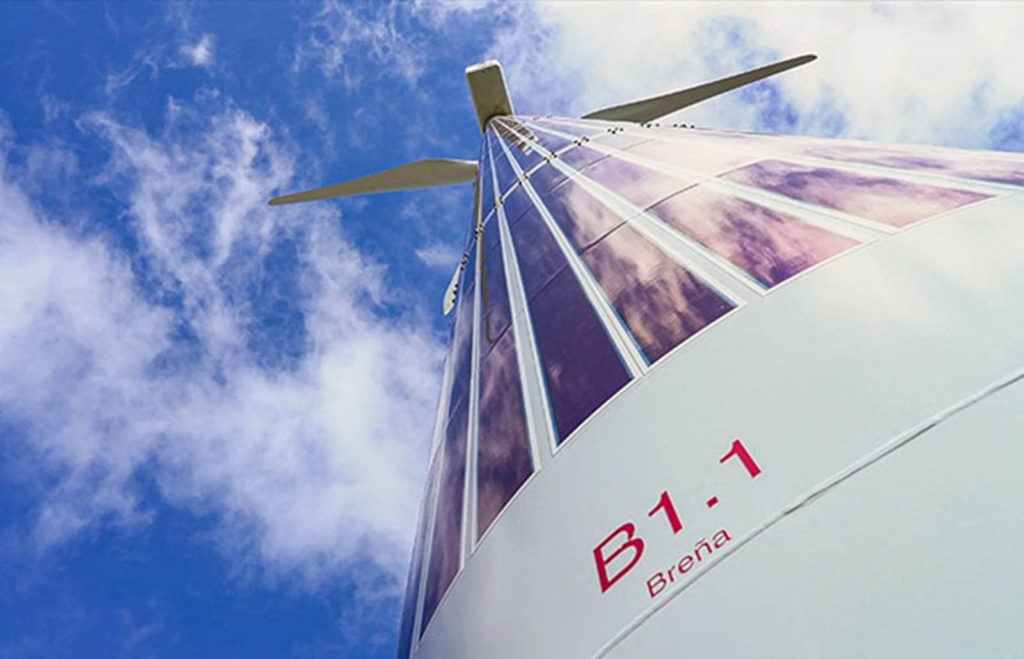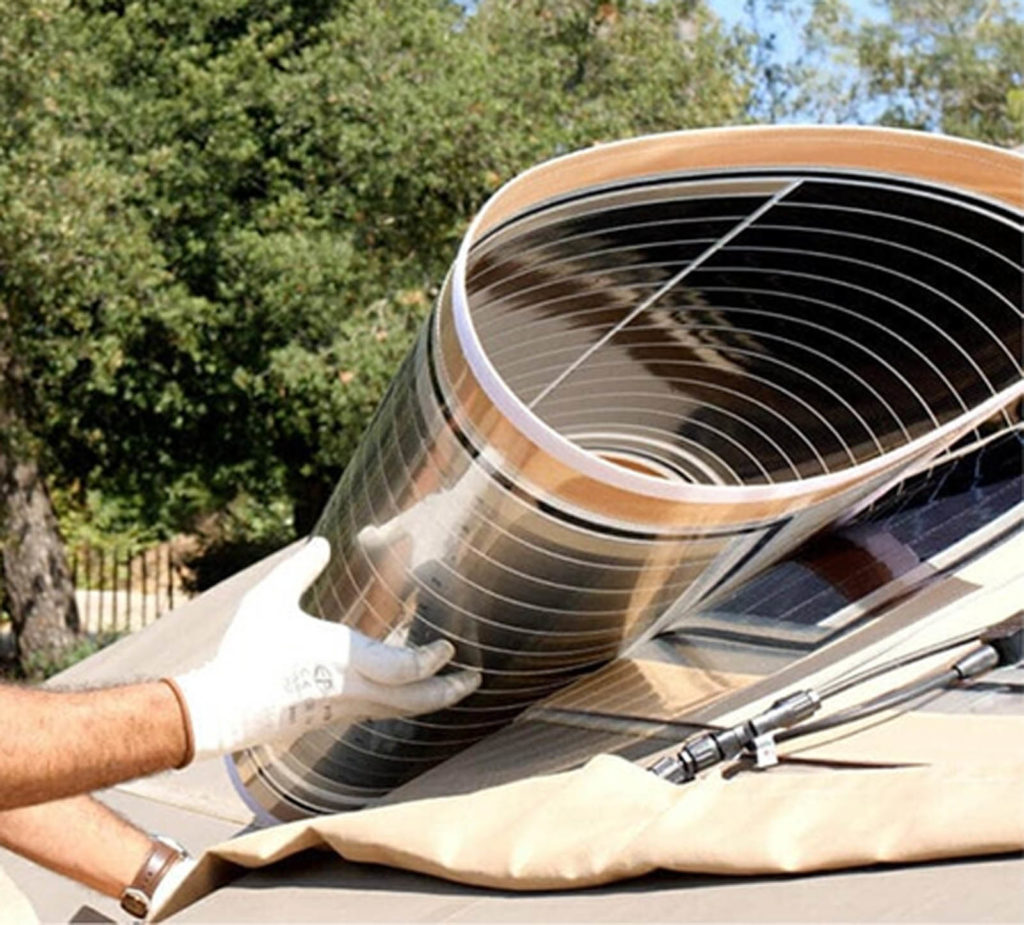
Solar film, a relatively new product, is being developed by European firms, such as the German brand Heliatek and the French enterprise Solar Cloth, and has grown in its use recently. While existing solar panels provide an excellent source of clean energy, their rigid framework prevents them from fitting on many surfaces. Heliatek says that “almost 98 percent of all global available rooftop surfaces” are not used for solar power generation, which represents huge potential for the company’s solar films that can be used on most surfaces.
Flexible, lightweight and easy to install, the malleable panels are said to have the same performance as traditional solar structures. The company’s ready-to-use film, HeliaSol, can clad facades or become part of the roofing structure. Designed like a sticker, the solar film is ultra-thin, flexible, customizable and weights only a few grams, The company says it can be set up in just a few hours across large surfaces to generate 85W/ sqm, leaving a very low carbon footprint of less than 10 g CO2e/kW.

To produce the film, the company organic photovoltaics (OPV) technology, where light is converted into electricity using semiconducting materials. The German brand has also released HeliaFilm, a stick-on roll of film that is equally light and flexible and can adhere to glass, concrete and metal.
French company Solar Cloth has launched its rollable M170 solar film model with encapsulated cells. At just 0.5 mm thick, the product can be installed on all surfaces, rounded or straight. The M170 also incorporates photovoltaic textiles, but these are created using CIGS (Copper, Indium, Gallium, and Selenium) technology.
Additionally, this technique is based on material recycling, adding a another environmentally friendly aspect to the company’s invention. According to Solar Cloth, the CIGS-based technology has generated a 17.2 percent yield for the first time on a roll-up textile base, with lower production costs.
 TEXTILES.ORG
TEXTILES.ORG


